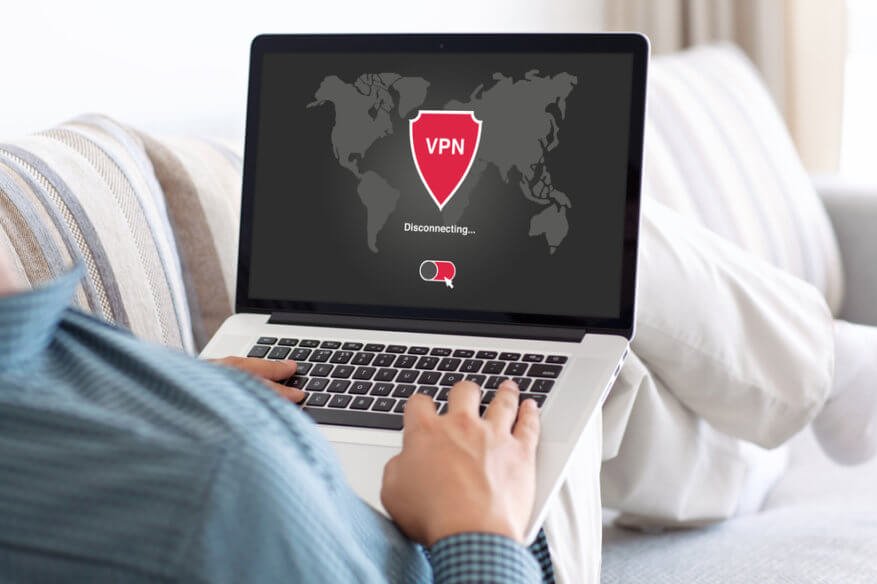Basics Of VPN Advantages And Disadvantages

Here in Hackercombat.com, we have been advising people using public networks to sign-up for VPN (Virtual Private Networking) in order to reproduce the “privacy” aspect of a home network while being public. The creation of a secure pipe of packet transmission is the key to VPN, destination sites and IP addresses do not see the actual device, but rather the end-point of the VPN vendor. This keeps a VPN user private compared to a normal user directly browsing the Internet through the use of straight ISP connection.
Of course, there is no perfect solution, some even went ahead and utilize TOR (The Onion Router) on top of VPN for the best anonymity possible on the Internet. In this article, we share the advantages and disadvantages of a VPN for you to make an informed decision. Is VPN for me?
Advantages of VPN:
The security of WiFi communication is dramatically improved
The biggest advantage of VPN is that it can encrypt communication content. Using a properly managed VPN can significantly enhance the security of communication. For example, when using “Free Wi-Fi” at a cafe or airport in the city, many of them do not have appropriate security measures. If you connect to such free WiFi, there is a risk that the content being communicated will be missed by anyone else. There are a lot of things that WiFi installers and bad people around you can “tap”. When communicating using a VPN, the communication content is highly encrypted, so it is impossible to decipher it even if someone intercepts the WiFi radio wave. Also, even if you connect to free WiFi installed for information collection purpose, the risk of information being stolen is almost eliminated.
Bypass Censorship
In countries such as China that do not have free speech, they can not access sites that violate government policy. For example, Facebook and Twitter can not be used in China. VPNs are being used by Chinese citizens to escape such censorship. By using a VPN, you can bypass site censorship and gain free access to the site. In addition, I think that there are places where you can bring in a PC or smartphone at work or school and use the Internet, but there may be sites that cannot be browsed by filtering. Such filtering can also be done using a VPN, and it doesn’t bar what site you saw.
Spoofing Location
With paid VPN application software, you can select the destination country by yourself. For example, if a person in Vietnam uses a VPN via the France, it is possible to “spoof” access from the France. It is said that there is no border in the internet world, but there are also sites that do not accept access from specific countries. Even Youtube, which is also frequently used by people globally, has a function that allows the poster to set so that you can not watch videos from a specific country. It seems that record companies may have set access restrictions for some music videos.
Disadvantages of VPN:
Connection speed reduced by-design
If you use a free VPN, the communication speed will drop significantly. It is natural to go below 1Mbps, and you will feel that internet surfing on smartphones is of course “slow” as well as PC. Some paid VPNs also have slow communication speeds. On the other hand, there are many things that can be used with almost no change in communication speed, so use them properly.
The risk of all information being pulled out
When using VPN, communication is performed via the server of the VPN provider. So there is a risk that the provider of the VPN can steal all communication contents if you use the maliciously provided VPN. It’s free because it’s free, it’s not safe because it’s paid. It is important to choose and use something you can trust.
Selective browsing
Unfortunately, if you have a VPN connection, some sites may not be available.
Usage is “illegal” in some countries
In Russia, a bill was adopted to ban the use of VPN in 2017, the Putin administration is even pushing for Russian-only Intranet, which will be designed as the country’s internal Internet. This will isolate the country from the contents of the public internet, its purpose is to also prevent terrorism and prevent illegal websites. That is why the VPN is highly confidential, hidden to the state power that wants to suppress speech, but be careful when going to countries which ban VPN, they are serious with their regulation. There has been news that China has banned the use of VPNs, but this seems it still cannot be confirmed.
Also, Read: